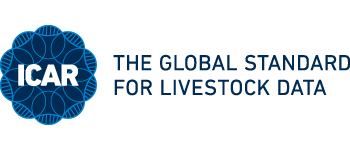The page shows introductory information about the Feed and gas Working Group
Introduction
In June 2015, at the ICAR Technical Meeting held in Krakow, the Board endorsed the Feed and gas Working Group whose Terms of Reference are available here
The Chairperson of the WG is Birgit Gredler-Grandl
Members of the Working Group
- Christine Baes
- Karoline Bakke
- Lorenzo Benzoni
- Raffaella Finocchiaro
- Maria Frizzarin
- Nina Krattenmacher
- Jan Lassen
- Jennie Pryce
- Caeli Richardson (2023 Brian Wickham Young Persons Exchange Program Bursary)
- Rasmus Bak Stephansen
Advisory Group
- Michael Aldridge
- Oscar Gonzalez-Recio
- Filippo Miglior
- Marcin Pszczola
Industry liaison group
- Michelle Axford
- Andrew Cromie
- Juan Pena
- Sijne Van Beek
- Marco Winters
Research liaison group
- Martino Casandro
- Noureddine Charfeddine
- Nicolas Gengler
- Oscar Gonzalez-Recio
- Meil Hostens
- Daniel Lefebvre
- Peter Lovendahl
- Eugene Maguy
- Stephanie Minery
- Yuri Montanholi
- Nico Peiren
- Romain Saintilan
- Georg Thaller
- Eileen Wall
Objectives of the Feed and Gas WG
The objectives of the Feed and Gas WG are to:
- Provide a forum for members of ICAR and associated researchers to collaborate, exchange information and learn from each other on all aspects of: recording and using dry matter intake data, and recording and using methane outputs data.
- Maintain, update, promote and extend universal guidelines for recording dry matter intake and methane output in cattle, sheep and goats world-wide
- Conduct and report the results of periodic international surveys on recording dry matter intake and methane output in cattle, sheep and goats worldwide.
- Develop, provide and promote a system and standards for data storage and genetic evaluation services which will form the basis of services that ICAR will provide to members of ICAR and their research associates on a user pays basis.
- Facilitate and cooordinate international collaboration in research and development on recording and using dry matter intake data, and recording and using methane outputs data.
